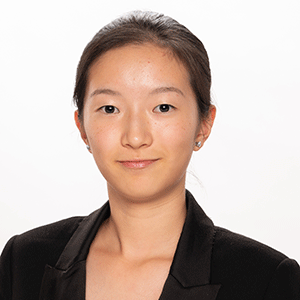This relatively straightforward, three-step process reads like a recipe for my summer volunteer work at my school-runned Ukrainian refugee center in the outskirts of Warsaw, Poland. Every Thursday, a group blended between student and teacher volunteers would go on for hours on end preparing free, essential food boxes for Ukrainian refugees arriving to receive them.
As I look up from the monotonous tasks of my repetitive packaging, I begin to notice droves of children and teenagers dropping by as they scour through piles of donated clothes, toys, and board games. This is when I started questioning the very purpose of why they were there in the first place. What made this band of refugees come to seek help? What is it that happened to their lives that caused them to seek refuge in the first place? I realized the answer to my ponderings was simple: wars.
Today, wars are both the most gargantuan man-made and the most easily preventable disruption to our global progress toward achieving the United Nations Sustainable Development Goals (SDGs). In our case study of the Russo-Ukraine War, it is war that caused some 2,000 educational institutions to suffer from bombing and shelling since February 2023, while UNICEF reports that the Ukraine war has disrupted education for more than five million children. It is war that attributed some 120 million metric tons of planet-heating pollution to the first annual year of the war, while CNN predicts that the bulk chunk of the conflict-induced emissions is still to come with the future reconstruction of Ukraine. And it is again war that continues to upend the lives of so many families while casualties, disruptions in supply chains, and limited access to healthcare in conflict-affect regions are continuing to skyrocket to ever-increasing heights.
Although wars are at the root of reversing decades of global progress towards the SDGs, we as humans bear full anatomy over their very existence, as well as the frequency in which they appear in our present-day society. In other words, as the initiators of wars, it is we who hold absolute power in stopping them. And this is where the art of negotiation, diplomacy, and communication comes into play.
At the end of the day, both sides of the battlefield fight for the same thing: justice. It is our varied interpretations of the concept of justice and the margin of differences between our perspectives that prompt the escalation of verbal conflicts into physical ones. To this end, world leaders are tasked with a profound responsibility to unite people, promote common understanding, create peace, and forge friendships between nations. Only through harmonizing the diplomatic relationship between one nation and another, coupled with a willingness to reach common grounds on the application of justice in contending viewpoints can we ultimately achieve the paramount goal of fulfilling our obligations in achieving the SDGs.
To make this a reality, world leaders should strive to ensure that the prime purpose and the ultimate goal of all diplomacy, mediation, and dialogue must be set on collective development and interconnection on a global scale. In addition to keeping an acute eye on the way in which we approach multilateralism, we must also amplify our peacebuilding efforts by investing in conflict resolution programs that help build resilience against future conflicts and contribute to the establishment of lasting peace.
Taoism teaches us the concept of “Ying and Yang”. These two complementary forces do not battle but exist in equilibrium, the black with the white, the symbol of earth coupled with the emblem of heaven, acceleration in balance with the stability of nature. These worlds are not opposites. For all their contrasts, they share the same energy for balance as well as the promise to maintain harmony within the universe. To fulfil the promise of the Sustainable Development Goals by 2030, we need not tear ourselves in conflicts and in disputes; we need not pick between progress or retrogression. Just like the interplay of “Ying and Yang”, we as a global unit must cohere to face our common obligation in achieving the promise of sustainability and development, because the challenges ahead are larger than our differences.
